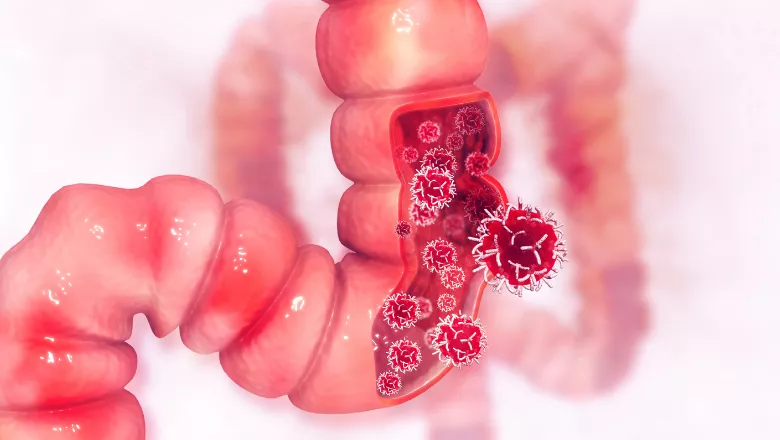Colorectal cancer is the cancer of the colon or rectum, which typically affects older adults but can occur at any age.

The response of patients with colorectal cancer to immune checkpoint inhibitors – a type of immunotherapy - is highly variable, and the reasons of this variability are unclear. It is known that some cancers, known as hypermutated, respond better because they carry loads of mutations that can stimulate the immune system. However, not all patients with hypermutated colorectal cancer benefit from immunotherapy.
Researchers from the Schools of Cancer & Pharmaceutical Sciences and Immunology and Microbial Sciences, led by Professor Francesca Ciccarelli and Professor Jo Spencer, conducted a "3D study" of the cancer tissue and surrounding non-cancer cells from patients treated with immune checkpoint inhibitors as part of international clinical trials. The aim of this work, which was in collaboration with the University College London Hospital and the Francis Crick Institute, was to understand the cellular and molecular reasons for the variable response to treatment.
The team selected multiple cancer regions from patients who responded and did not respond and analysed these regions using multiple 'omics' technologies, including the sequencing of the cancer DNA and the characterisation of the immune cells around the tumour using a novel technology called imaging mass cytometry. This allowed them to obtain a very detailed molecular and cellular 3D map of each tumour.
We combined the expertise of clinicians, immunologists, computational biologists and cancer geneticists to study the response of patients with colorectal cancer to immune checkpoint inhibitors from different angles. This allowed us to have a complete picture of all actors involved. Our study illustrates how cutting-edge technology and interdisciplinary research are essential to understand the mechanisms of action of novel treatments, such as cancer immunotherapy.– Francesca Ciccarelli, Professor of Cancer Genomics
The team confirmed that the patients who benefitted the most from immunotherapy had cancers with many DNA mutations. However, rather than the total number of mutations, how many cells shared the same mutations proved to be more important in predicting response. This feature, known as mutation clonality, is needed for the immune system to recognise and kill several cancer cells at the same time. They also found that tumours from responder patients were highly infiltrated with various immune cells, among which T cells and macrophages.
Using a technology called multiplexed immunohistochemistry, they were able to see that the interactions between these immune cells were mediated by the same molecules that are targeted by the immunotherapy drugs.
The results of our study will help clinicians to select the patients who will respond to immune checkpoint inhibitors even before starting the treatment, thus maximising the benefits. They also opened up to new questions that we are currently addressing. For example, we are trying to decipher the dynamic crosstalk between cancer cells and the immune system to understand how the different immune cells are recruited into the tumour.– Francesca Ciccarelli, Professor of Cancer Genomics
The study was published in Gastroenterology, you can read the paper here.






